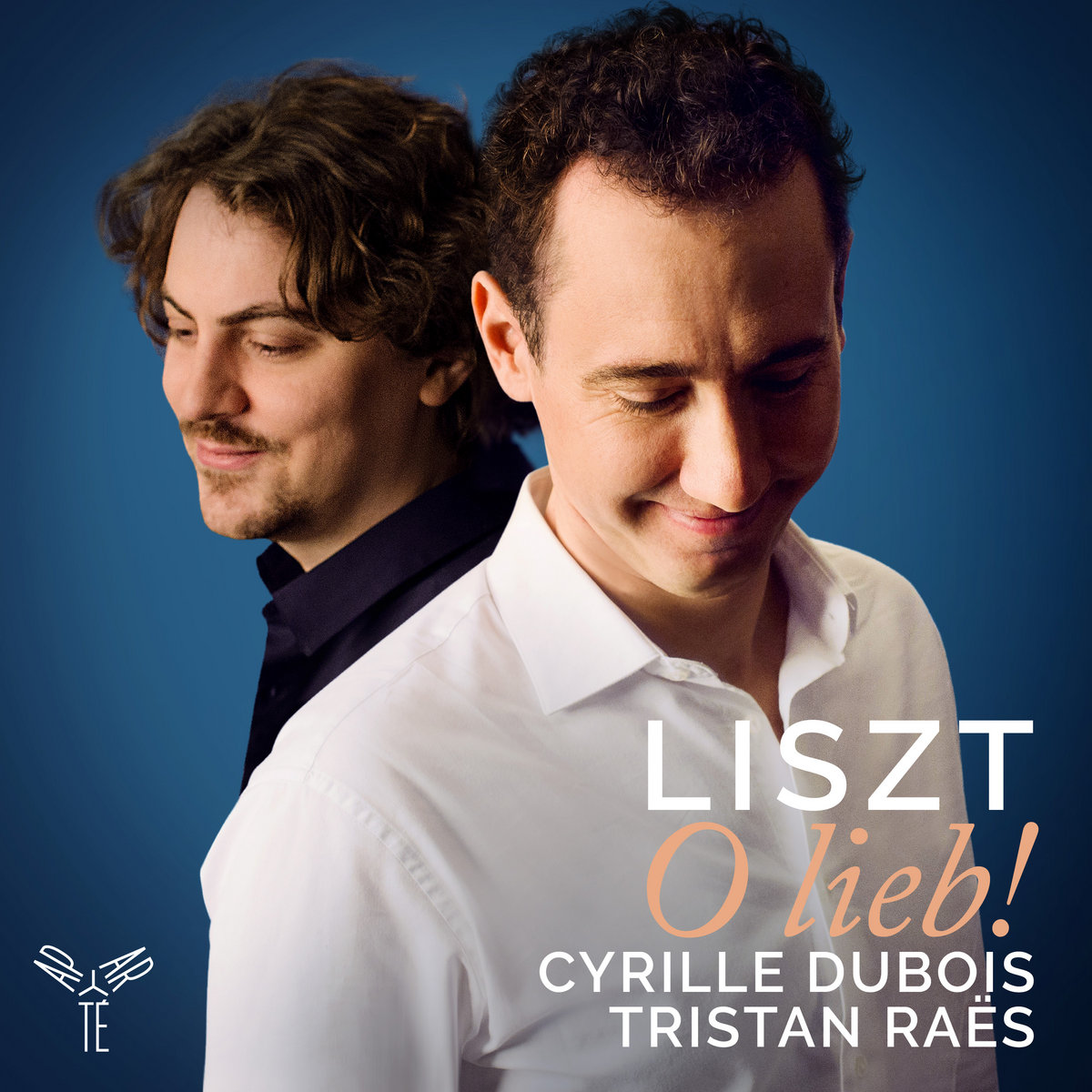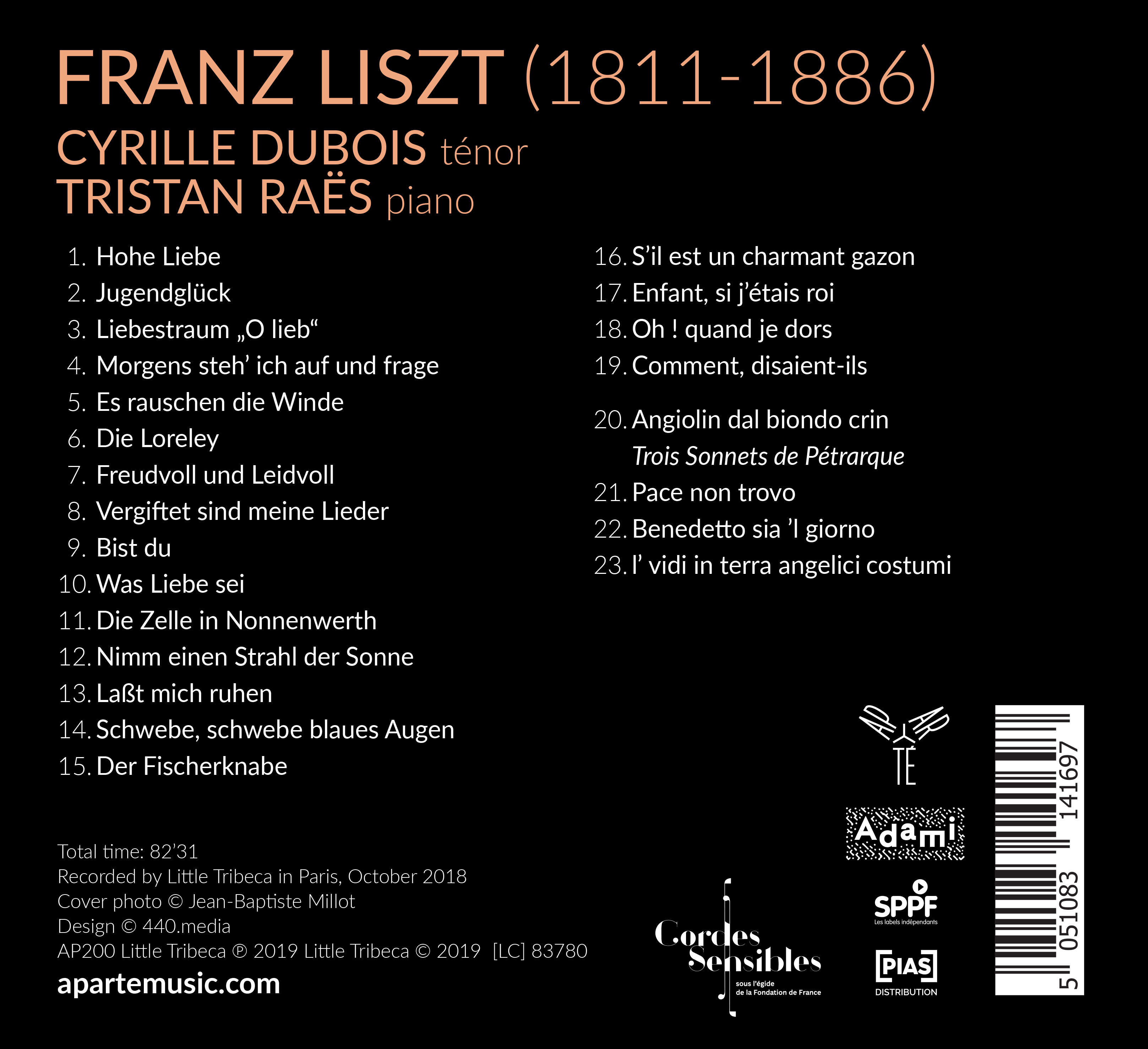Cyrille Dubois, Tristan Raës
AP200 - 1CD - 82' - Oct 4, 2019
The renowned tenor Cyrille Dubois and the pianist Tristan Raës move forward with the French mélodie and dedicate their new album to the more confidential part of the production of Franz Liszt: his vocal pages.
Sensuality, passion and sincerity are woven together, forming the main theme of this program, with in the background the idea of an artistic modernity transcending borders. The disc features gradually German Lieder and French and Italian melodies.
A great traveller, this convinced European ahead of time knows how to seize with rare accuracy what is particular to the expression of love in each of these cultures: German and its romanticism through the words of Heine, Schiller or Goethe, together with the appeal to nature for reinforcement in order to reveal one’s feelings with modesty; the sweetness of Hugo’s lines for describing French coquetry, or finally the incredible perfection of Petrarch’s Sonnets, forever modern, for making Italian sing – the language of love if ever there was one.
Cyrille Dubois and Tristan Raës were already awarded for their musical skills, and acclaimed in the German vocal repertoire (Schumann and Schubert).
As good in the language of Goethe as in those of Dante and Hugo, Cyrille Dubois knows how to convey the poetic and dramatic scenes of Liszt's lieder and melodies, with his alternately intimate and powerful tenor voice. Faithful to his teacher Helmut Deutsch, he uses the infinite facets of the piano. Incredibly talented and sensitive, Cyrille Dubois bewitches all those who hear him as does Heine’s Loreley!
FRANZ LIZST
1. Hohe Liebe (LW N18/S307, 1850)
2. Jugendglück (LW N61/S323, 1860)
3. Liebestraum „O lieb“ (LW N18/S298, 1850)
4. Morgens steh’ ich auf und frage (2e version, LW N16/S290-2, 1859)
5. Es rauschen die Winde (2e version, LW N33/S294-2, 1860)
6. Die Loreley (2e version, LW N5/S273-2, 1856)
7. Freudvoll und Leidvoll II (LW N23/S280-2, 1848)
8. Vergiftet sind meine Lieder (LW N29/S289, 1859)
9. Bist du (LW N21/S277, 1844)
10. Was Liebe sei (1re version, LW N7/S288-1, 1844)
11. Die Zelle in Nonnenwerth (4e version, LW N6/S274-2, 1860)
12. Nimm einen Strahl der Sonne (LW N20/S310, 1860)
13. Laßt mich ruhen (LW N55/S314, 1859)
14. Schwebe, schwebe blaues Augen (1re version, posthume, LW N35/S305-1, 1917)
15. Der Fischerknabe (1re version, LW N32/S92-1, 1847)
16. S’il est un charmant gazon (1re version, LW N25/S284-1, 1844)
17. Enfant, si j’étais roi (2e version, LW N24/S283-2, 1859)
18. Oh ! quand je dors (2e version, LW N11/S282-2, 1859)
19. Comment, disaient-ils (2e version, LW N12/S276-2, 1859)
20. Angiolin dal biondo crin (2e version, LW N1/S269-2, 1856) Trois Sonnets de Pétrarque (1re version, LW N14/S270-1, 1846)
21. Pace non trovo
22. Benedetto sia ’l giorno
23. I’ vidi in terra angelico costumi



